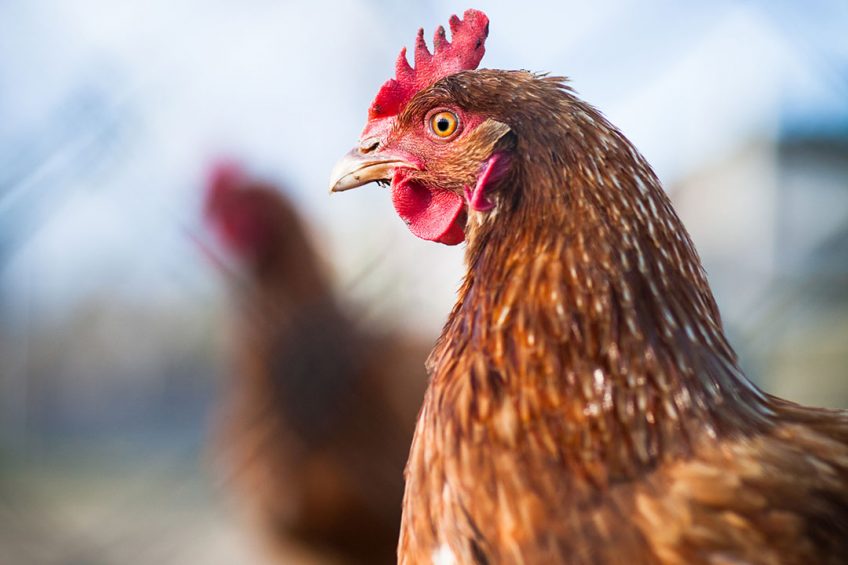Search continues for alternative feed for organic poultry

Sourcing cost-effective organic feed has long been a challenge for European organic poultry producers, who for many years have been largely dependent on imported organic soya for high-quality protein feed.
The OK-Net EcoFeed project, set up last year and funded through the EU Horizon 2020 programme, has been helping European organic farmers to explore alternative protein sources and encourage the use of more regional feeds.
It has 19 partners across 11 European countries and is due to run until the end of next year. The consortium includes feed processors and mills, farmers and farmers’ organisations, research institutes, universities and advisory agencies.
Protein needs of layers & broilers
And now the IFOAM EU Group has produced a 72 page knowledge synthesis document covering the protein needs of layers, broilers and pigs, the different resources of protein feed and their nutrient content, equipment for feed processing and different feeding strategies.
Overcoming the challenge of 100% organic, local feed
IFOAM said feeding poultry and pigs with 100% organic and regionally produced feed could be a challenge, particularly in getting enough protein and specific amino acids. It said there were 2 ways to overcome the challenge.
- “The first solution it to use by-products like waste from various productions. Exploring new protein sources like marine products or refining the use of known products like grass are also possible.
- “Another solution is to feed animals less intensively. For this feeding strategy, slow-growing breeds are a better fit. Some slow-growing breeds are already known, some are rediscovered old breeds. Slow growing breeds pose the challenge of a small yield and/or less income for the farmer leading to an increase in the prices of eggs and meat. However, there are many options to combine feeding strategies or regionally grown feed and low-yielding breeds that need to be further explored.”
Also read: Organic poultry production in the US
Visited 2 French poultry farmers
Project supervisors and farmers recently visited 2 French poultry farmers to see how they were dealing with on-farm feeding for organic broilers.
Marc Pousin’s farm in Saint-Pierre-des-Echaubrognes, provides 100% organic, local feed for its broilers. Mr Pousin is the founder of the Volailles Bio de l’Ouest (VBO-West Organic Poultry Coop) cooperation.
The farm has 3 free-range areas with 2 buildings and a small on farm feed factory. The feed composition is agreed with French organic feed firm Aliments Mercier, who provide locally sourced products.
A quarter of the broiler feed is produced on farm with 50% bought from a neighbouring organic producer. The remaining 25% mixed protein/minerals are brought to Aliments Mercier and formulated to be adapted with the farmers’ feedstuff.
Also read: Gaining a premium through organic conversion
2 other visits took place during the project meeting in Angers – one to an organic laying eggs farm with 95% organic feed, purchased outside of the farm and one to UFAB (Union Francaise de l’Agriculture Biologique, the leading organic feed company in France.
3 UK on-farm meetings
The UK is organising 3 on-farm meetings in Aberdeenshire, Gloucestershire and Suffolk, giving delegates the chance to look at practical options available to poultry producers.
Organised by the UK’s Soil Association, the Cirencester meeting on 17 April will involve presentations of previous research from Europe and a sprouted grain system for layers, as well as discussions of seed mixes used to provide a diverse grass ley for ranging chickens. There will be an opportunity to look at diverse leys within a mixed organic farming system.













